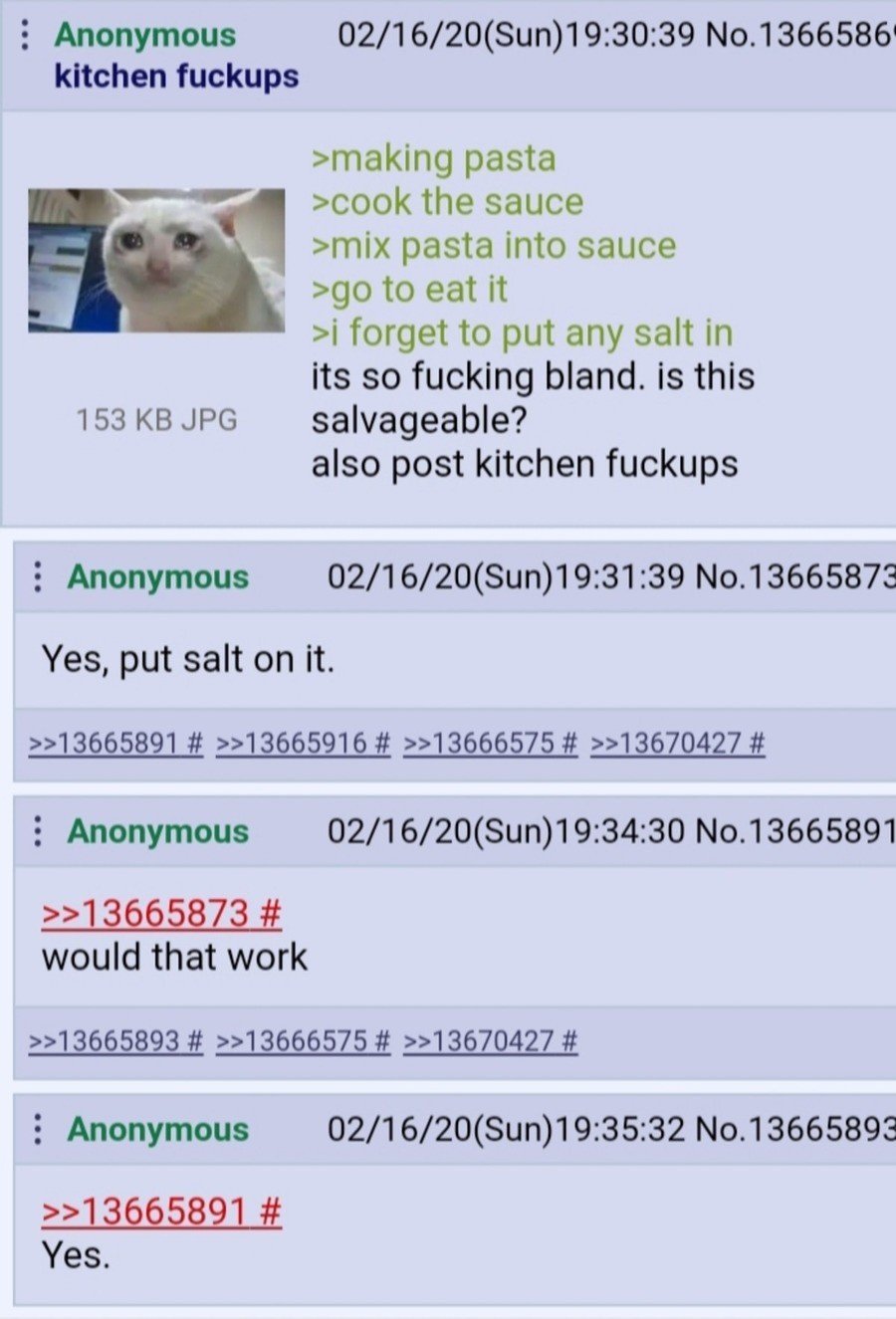this post was submitted on 22 Nov 2024
762 points (99.2% liked)
Greentext
6264 readers
1230 users here now
This is a place to share greentexts and witness the confounding life of Anon. If you're new to the Greentext community, think of it as a sort of zoo with Anon as the main attraction.
Be warned:
- Anon is often crazy.
- Anon is often depressed.
- Anon frequently shares thoughts that are immature, offensive, or incomprehensible.
If you find yourself getting angry (or god forbid, agreeing) with something Anon has said, you might be doing it wrong.
founded 2 years ago
MODERATORS
you are viewing a single comment's thread
view the rest of the comments
view the rest of the comments

I usually cook without much salt because you can always add more, but you can never remove it. This way everyone can eat each meal to their liking.
You could also cut the food with more unsalted food, to fix the balance. Not uncommon in restaurant kitchens.
That's a good idea, I'll save it for occasions when I put too much salt.
But the salt absorbing into the pasta will be a bit different than being part of the sauce. If it's a common issue that people you're cooking for want less salt, fine I guess. If not, salt the water when you cook pasta.
Yes, pasta is one exception, I always cook it with more salt and no one has complained. I'm usually the one who wants less salty meals.
Yup. Having a little too much salt on your pasta won't matter, you can always taste the pasta and adjust the sauce accordingly. I tend to undersalt the sauce, because we add quite a bit of salt w/ grated cheese or something, so I don't want someone's preference for extra cheese to ruin the meal.